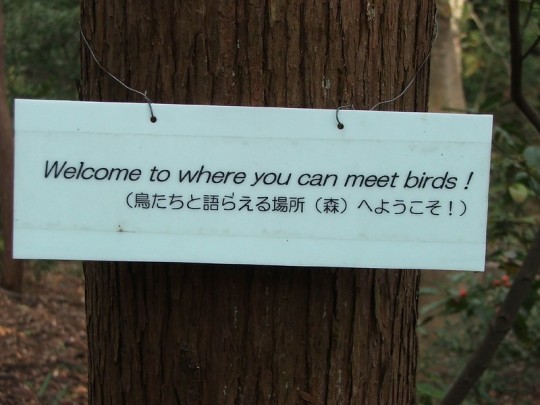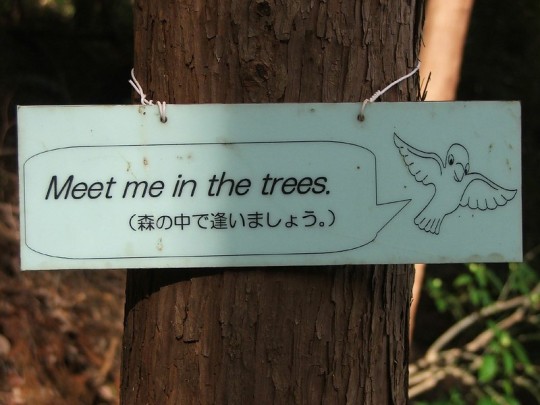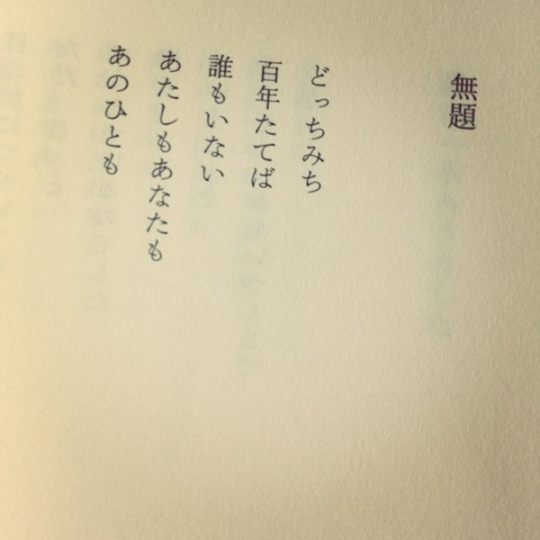Text
火火火火火火火火火火火火火火火火
火炎炎炎炎炎炎炎炎炎炎炎炎炎炎火
火炎焱焱焱焱焱焱焱焱焱焱焱焱炎火
火炎焱燚燚燚燚燚燚燚燚燚燚焱炎火
火炎焱燚 this 燚焱炎火
火炎焱燚 is 燚焱炎火
火炎焱燚 fine 🐶 燚焱炎火
火炎焱燚燚燚燚燚燚燚燚燚燚焱炎火
火炎焱焱焱焱焱焱焱焱焱焱焱焱炎火
火炎炎炎炎炎炎炎炎炎炎炎炎炎炎火
火火火火火火火火火火火火火火火火
602 notes
·
View notes
Text
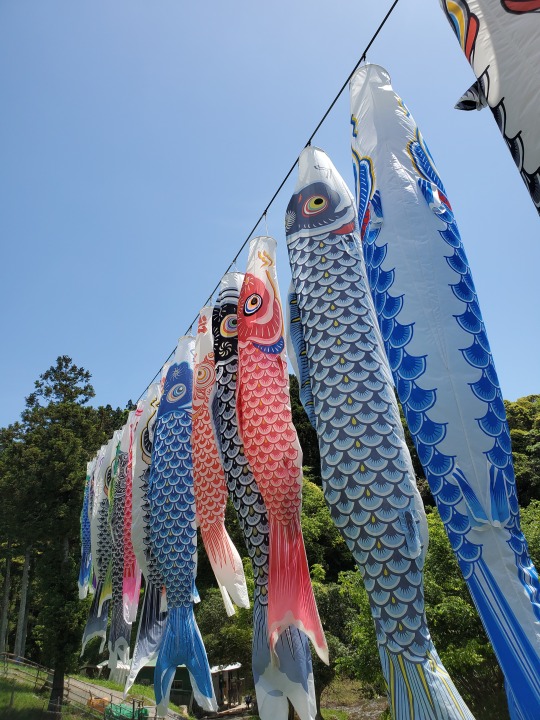
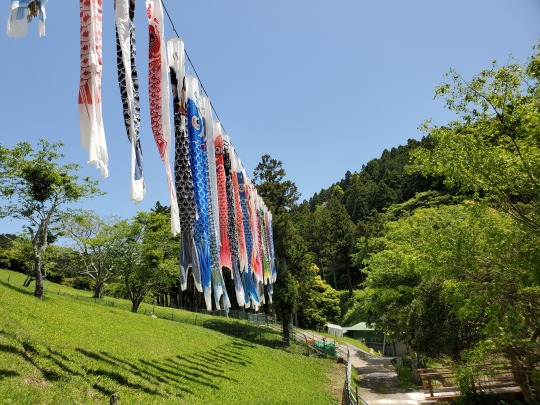
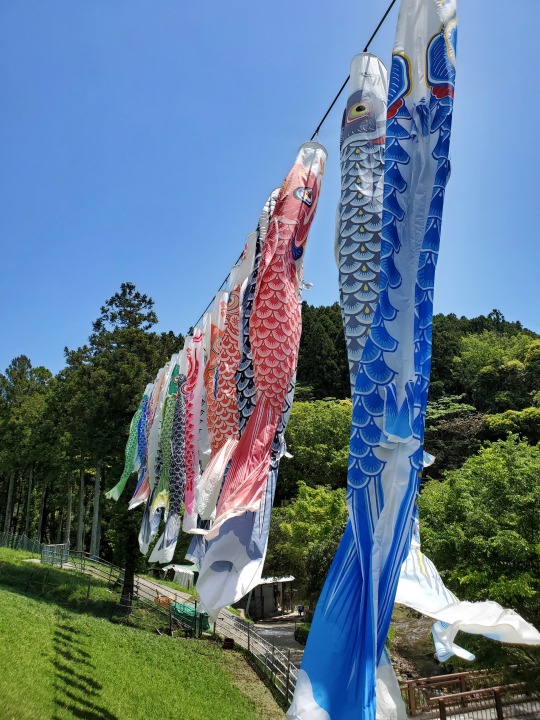
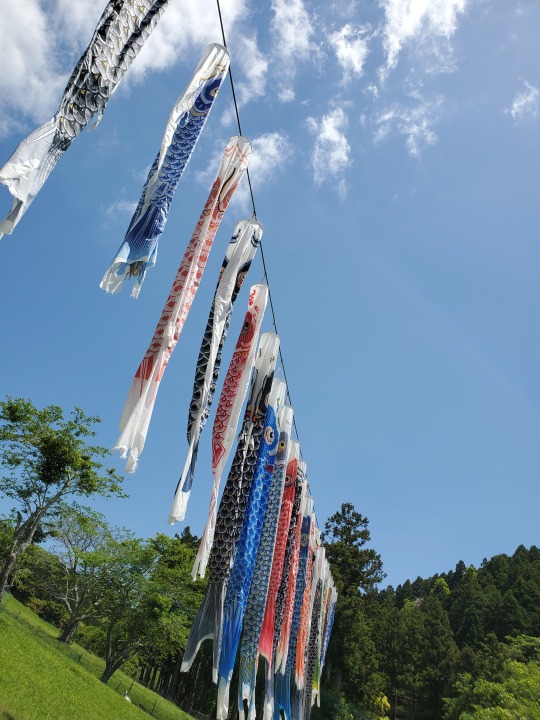
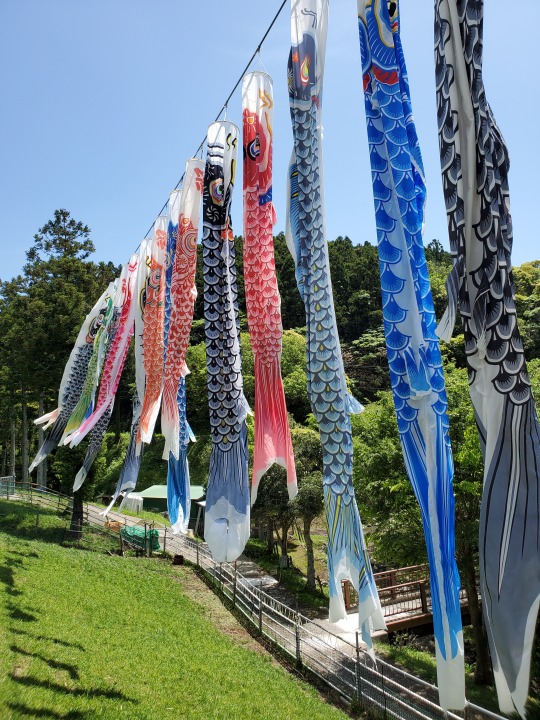
Koinobori - Chiba Carp Streamers
These are some of the carp streamers we came across today in our local area. Cities and villages across Japan hold koinobori (carp-streamers) festivals in celebration of Children’s Day, May 5th. The koinobori are said to represent good health, happiness and success as a result of the courage and strength of the carp to swim upstream.
124 notes
·
View notes
Text
Vocab Challenge
Take 10 words from your vocab spreadsheet and use them in as few sentences as possible:
顔なじみ, ウキウキ, 黄色い声, 冬日和, てっきり, 無暗に, 童顔, ふわり, 倒産, 帰省
帰省する日はいい冬日和で、出かけに行って駅前でウキウキしようと思ったけど、すぐに株を無暗に買って倒産してしまった顔馴染みに出会った。てっきり彼がもてなくなったと思ったのに今までも女性があの童顔を見ると、黄色い声があがる。聞くと思わずにふわり耳を擦った。
13 notes
·
View notes
Text
Podcast Review: ことのは

Podcast Title: 日本語の会話のpodcast −ことのは−
(にほんごのかいわのpodcast −ことのは−)
Available On: Spotify, YouTube
Ease of Listening: ★★★★★
Length of Episodes: ★★★★★
Level of Engagement: ★★★★★
Episode Frequency: ★★★★★
Overall: ★★★★★
Today I will be reviewing the Japanese conversation podcast ことのは (Kotonoha) by Yamamo-sensei and Kibi-sensei. They have episodes for all levels, separated by JLPT level N5-N1 and labeled so you can determine which episodes best suit your level or challenge yourself with a higher level.
Do I currently listen to this podcast?: Yes, I like this podcast a lot and listen to it frequently.
General Overview
Good For Levels: Beginner | Intermediate | Advanced
In this series, Yamamo and Kibi, two Japanese language teachers based in Japan, speak on a variety of topics in a conversation style of podcast. The conversation-style format is good for training your ear to listen to questions and responses, and every day banter between two speakers. They talk about Japanese culture and their own personal experiences which gives listeners an insight to the particulars of daily life in Japan.
Length of Episodes ★★★★★
The podcasts are usually around 20-30 minutes long. This is ideal for a commute or when you have some down time. They cover 2-3 subtopics within each topic they pick, so the conversations are very interesting and catch my attention and they don't seem too short or too long. They plan out each conversation topic carefully and keep it interesting and informative.
Level of Engagement ★★★★★
The conversation format is very engaging because they cover 2-3 subtopics within the main topic and structure the conversation to focus on each point of the topic. They keep the listener engaged with carefully planned-out topics and conversations, and there is obviously a lot of work that goes into their podcast. They match the vocabulary and pace of speaking with the level they are targeting, but even in the higher level podcasts I believe beginners would be able to catch the general flow of the conversation and challenge themselves to understand the content.
Episode Frequency ★★★★★
New podcasts come out once a week, and with the planning that goes into each episode it's a very good pace. There is also a lot of episodes already produced so you can go through them fairly quickly without running out of material.
Overall ★★★★★
This podcast is designed by two Japanese language teachers to convey information about Japanese culture completely in Japanese. The episodes are labeled by JLPT difficulty and I find the label system to be very accurate. It is a good podcast with which to practice your listening skills for every day conversation and to learn a bit more about Japanese culture.
124 notes
·
View notes
Text

なるほど。。。
*looks at the camera like im on the office*
149 notes
·
View notes
Text
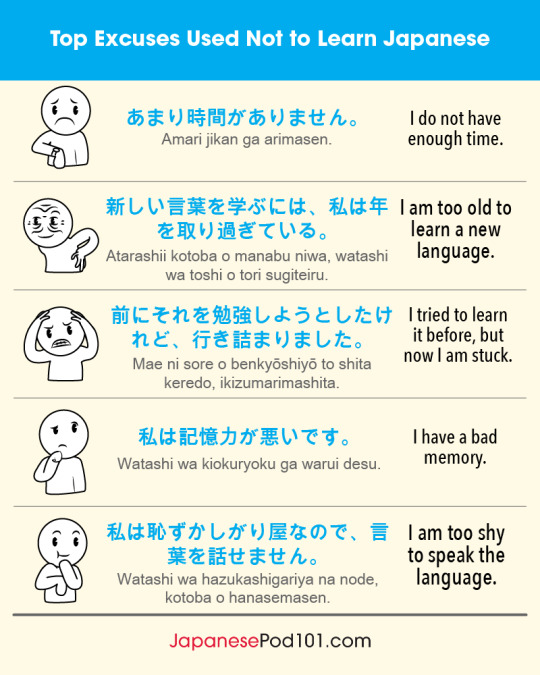
Top Excuses used to Avoid learning Japanese! 🙊 PS: Learn Japanese with the best FREE online resources, just click here https://www.japanesepod101.com/?src=tumblr_infographic_excuses_022824
82 notes
·
View notes
Text
Cherry Blossom Forecast 2024 Japan

Japan 2024 Cherry Blossom Forecast
The dates are the expected dates for the beginning of flowering.
Tokyo is expected to start flowering on March 23rd and reach peak bloom on March 30th.
Kyoto will see the first flowers on March 23rd and peak bloom will be April 1st.
Hokkaido (Sapporo) will see first bloom on May 1st and peak bloom on May 4th.
The next forecast update will be on March 14th.
112 notes
·
View notes
Photo

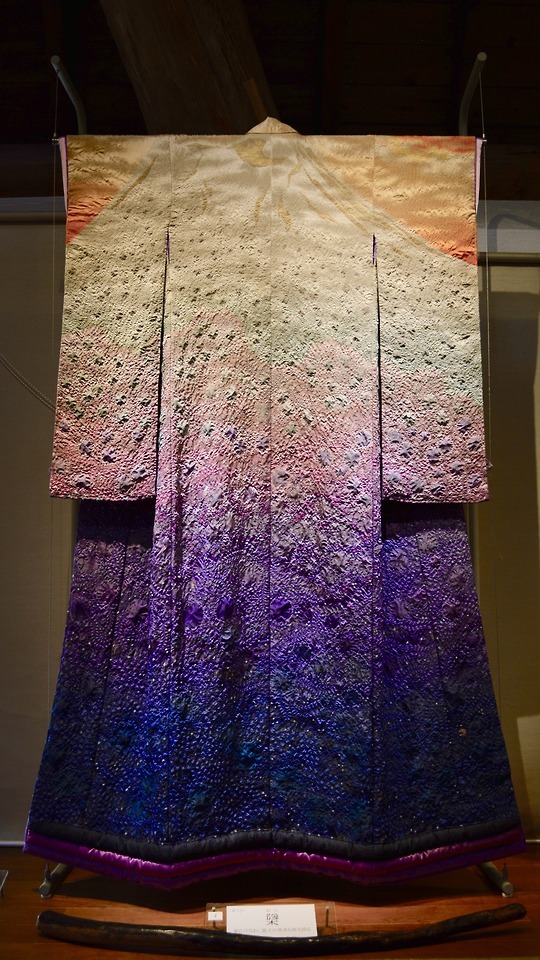
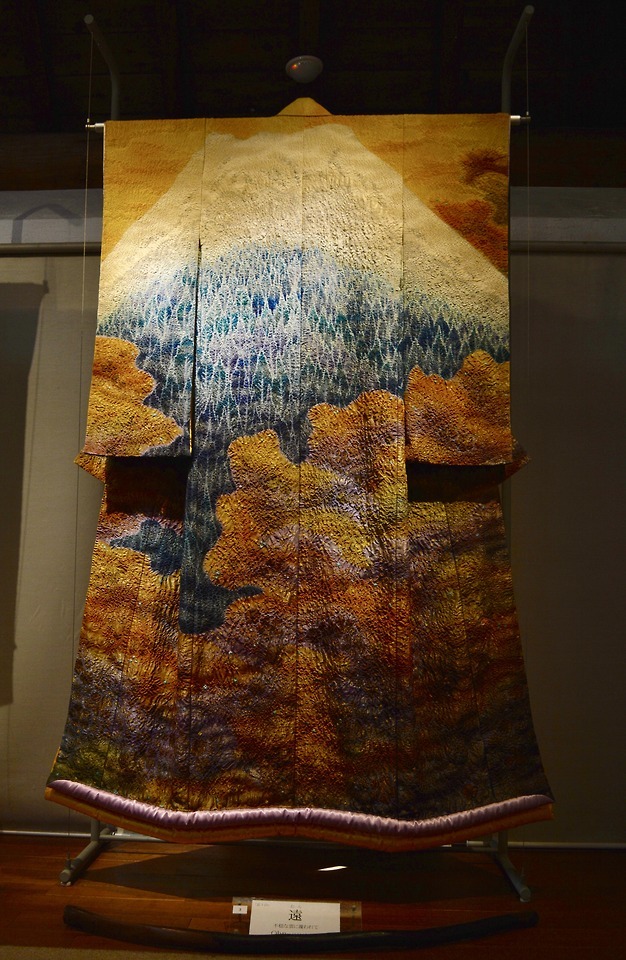
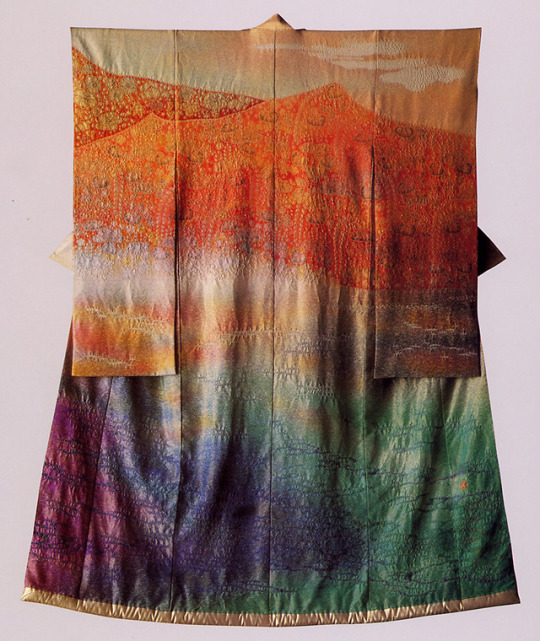
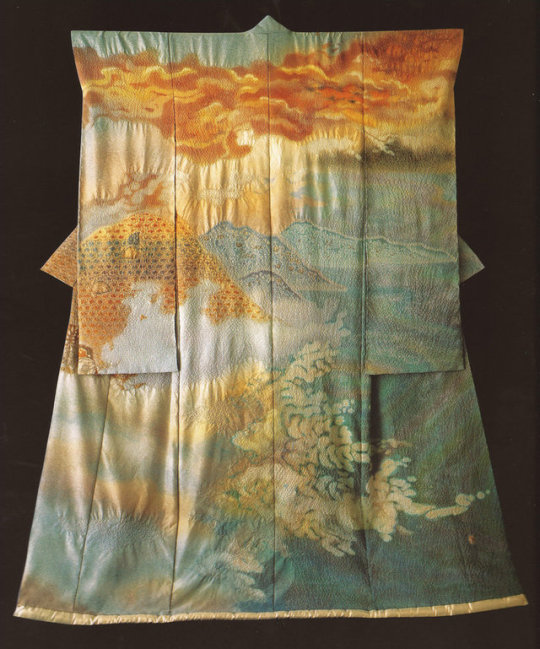




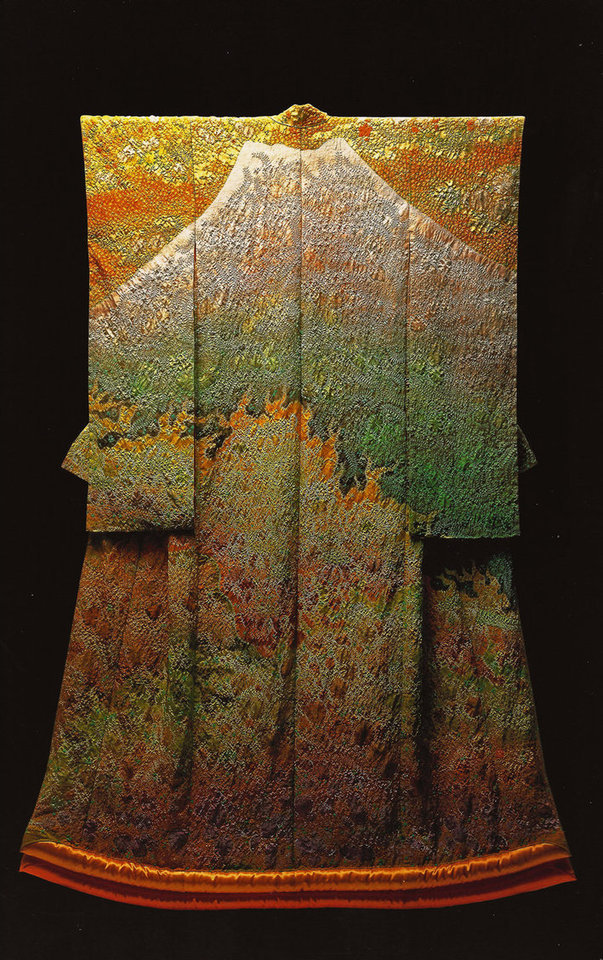
Itchiku Kubota (Japanese, 1917 - 2003)
11K notes
·
View notes
Text
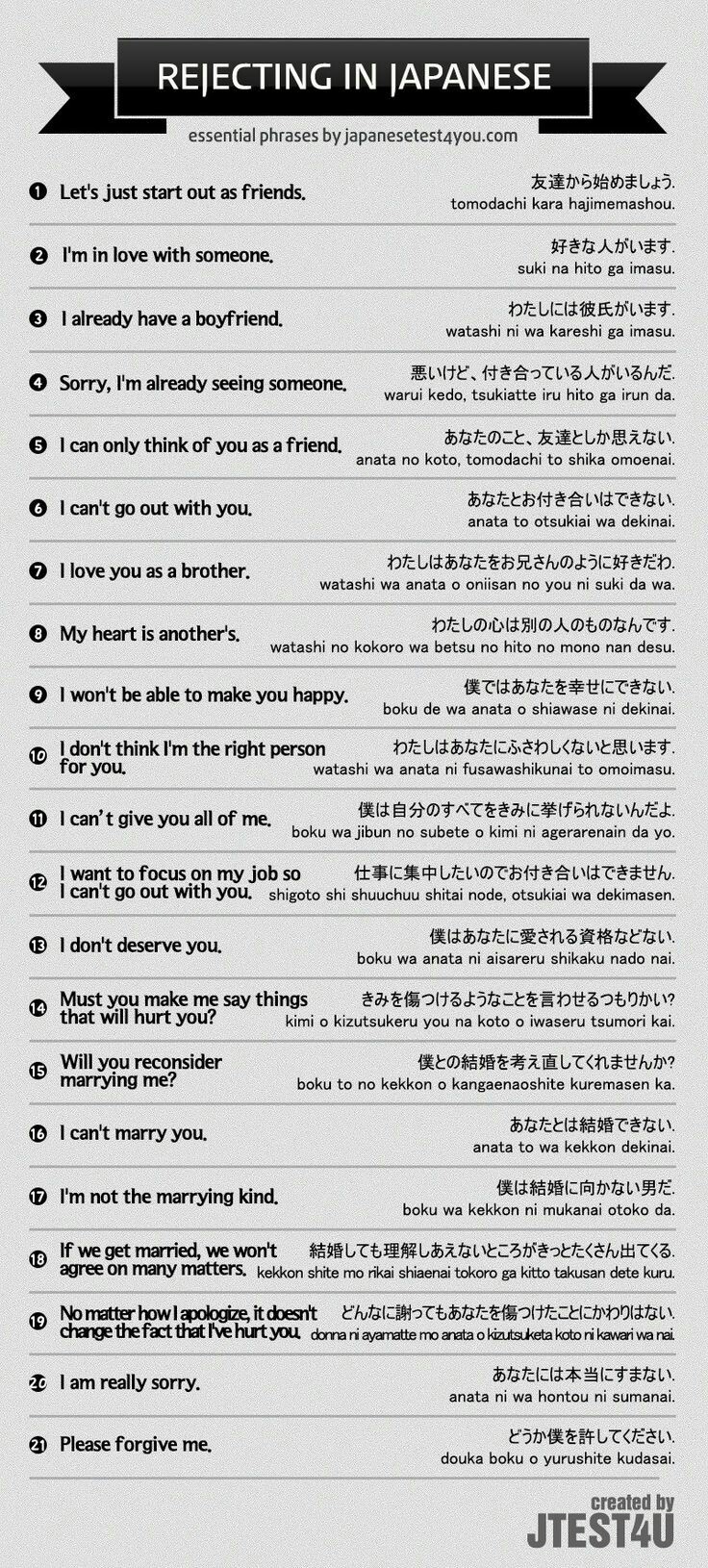
181 notes
·
View notes
Text
please reblog for a larger sample size、あれがとう!!
240 notes
·
View notes
Text
神無月 (kan-na-zuki) "October" (archaic)
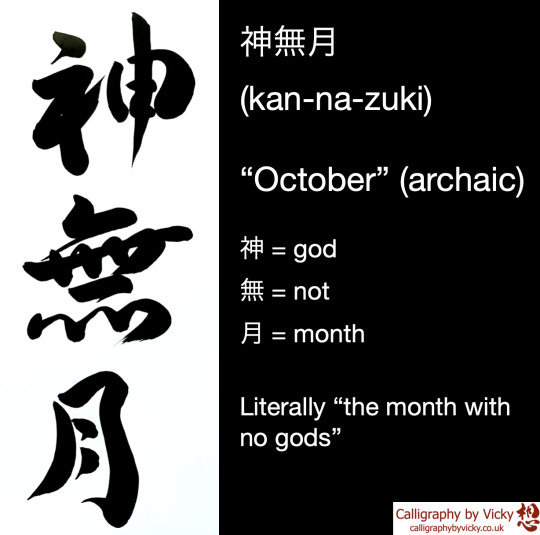
神 = god
無 = not
月 = month
The modern Japanese word for October is 十月 (literally "10th Month), however in the old-fashioned calendar is was known as 神無月, or "the month with no gods".
In October, all the gods in Japan (there are believed to be 8 million of them) go to Izumo Shrine in Shimane Prefecture for a meeting, thus leaving most of Japan with no gods.

The huge shimenawa (sacred rope) at Izumo Shrine.
929 notes
·
View notes
Text
Today I learned about the following Japanese words
晴れ女 (はれおんな), a woman who causes the weather to become sunny when she goes out
晴れ男 (はれおとこ), a man who causes the weather to become sunny when he goes out
雨女 (あめおんな), a woman whose presence causes rain
雨男 (あめおとこ), a man whose presence causes rain
I decided to create a fifth one:
天気の友 (てんきのとも), your nonbinary friend who is always prepared for whatever weather they might face. Rain coat, mittens, zip-off pants, you name it. They're prepared.
For illustrative purposes:
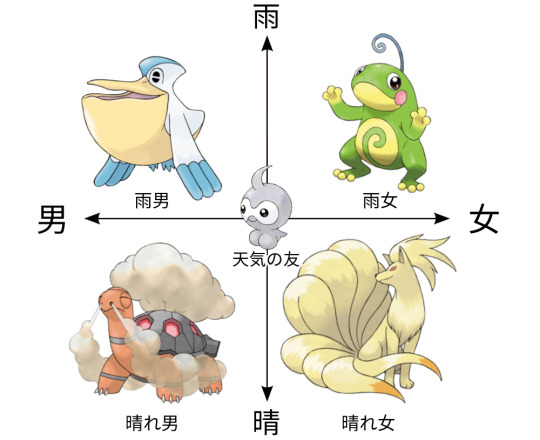
418 notes
·
View notes
Text

Japan Court Rules Trans Man Can Change Gender Marker Without Surgery
Them reports:
A Japanese court this week approved a transgender man’s legal gender change without first requiring sterilization, marking a major step forward for trans rights in the country.
Takakito Usui, 50, won recognition of his gender before the Okayama Family Court’s Tsuyama branch on Wednesday. “I want to thank my family. I feel a new life is beginning,” Usui, a farmer living in the rural Yamagata Prefecture, said at a press conference on Wednesday following the ruling.
Usui previously petitioned to change his legal gender in 2016, the paper noted, but was rejected because he had not been medically sterilized, as was then required under Japanese law. In October, Japan’s Supreme Court struck down the 2003 statute requiring trans people to be sterilized before obtaining legal recognition.
More here!
25K notes
·
View notes
Text
IRL Japanese 2: Things the kids I teach say all the time
If you're planning to work as an ESL teacher in Japan working with kids, this vocab is gonna be super useful for you! You'll pick up a lot as you go along, but it's good to have an overview from the start.
できた = done, finished (whenever they finish an exercise I've set them. The older kids will use the ます-form, but kids under like age 8 will use this one)
かえる?= is it time to go home? (lit: go home?)
わかった = got it (again, the older kids will use the ます-form)
わからない / わかんない = I don't get it (idk if わかんない is just dialect or if it's common overall, but I hear it more than わからない. Usually from the kids who don't wanna be there and are making zero effort)
ちがう = wrong / different (when they give an answer but realise it's not correct. It's basically like "wait, no")
ばか = idiot (sometimes boys say this to their friends)
全部?(ぜんぶ)= everything?! (asked in disbelief when I ask them to write more than one word)
やめろ = stop it! (used with friends when they're teasing each other)
いたいよ = that actually hurts, you know! (used with friends when they're rough-housing)
よし (more like 'yoshhh') = right then (filler word indicating the start of an activity or a change of activity)
水筒(すいとう)= water bottle (most kids bring one to class and frequently forget to take them with them when they go home)
忘れた(わすれた)= I forgot (usually in reference to the text book they left at home)
トイレに行きたい = I want to go to the bathroom
先生、大好き!(せんせい、だいすき!)= I love you, Sensei!
Other useful classroom/school vocabulary:
サイコロ = dice
トランプ = playing cards
ごろごろ = onomatopeia for the sound for rolling (I found the kids got confused if I just mimed rolling a dice/ball and said "roll!" but if I did the gesture and said "gorogoro", they understood)
ビリビリ = onomatopeia for ripping (useful for when you have tear-apart crafts in class)
ケシケシ = onomatopeia for erasing something (useful when you try to explain to a kid they spelled something wrong. Because it's easier to just say "A kesh-kesh, E" than "Not A, E. Okay great you wrote E, but A needs to go. No no no not the whole word, just A. Oh my God. Okay. Let me write it and you copy.")
ちょっと = a little, soon, wait a little (useful if the kids are getting a bit antsy and ready to go home a bit too early/don't want to wait their turn. Don't use it with parents though!)
がんばれ = do your best / you can do it!
あぶない!= dangerous / look out! (useful if a kid unexpectedly runs in front of me while I'm carrying a table)
せえの!= Altogether now! (When I need the kids to repeat something after me)
だめだよ = Don't do that (for when the kids repeatedly do something I've asked them not to do)
少々お待ちください(しょうしょう おまち ください)= polite form of "please wait a moment". Useful if you have a parent talking to you and you need to go get something (e.g. a communication sheet for them to point at so you know what they're trying to say)
授業参観 (じゅぎょうさんかん) = parent observation (PO). A couple of times a year, parents are invited into the classroom to watch the lesson (absolutely not a thing in the UK, not sure about other countries). The past two months I've had POs at my various schools, and so the parents come to the door and ask me if it's PO week. I don't understand most of the question, but I can pick out this one word and a question particle and figure out what they're asking.
It's also obviously a good idea to learn vocabulary related to stationery (eraser, pencil, crayon, pen, notebook, textbook, pencil case etc) because kids forget/lose their stuff all the time and will inevitably ask you if they can borrow something.
520 notes
·
View notes
Text
The あいうえお Game
Hello! I wanted to share with you a game that I made up that I like to use to practice Japanese vocabulary in my spare time (i.e. when I'm bored and don't have access to a phone). This game works well when you don't have time to do formal studying but want to challenge yourself for a short time anyways.
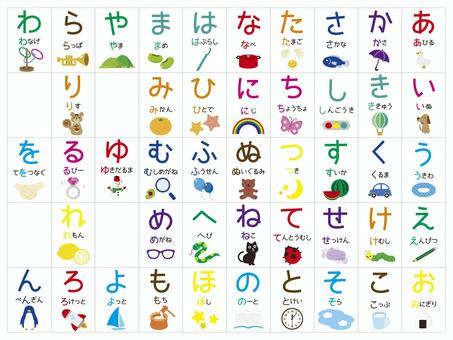
How to Play?
The general idea of the game is to come up with a word for each syllable of the Japanese alphabet/syllabary (あいうえお, etc.).
Step 1: Pick a Theme
You can pick any theme that you'd like, but I find that broader themes are easier to come up with words for than more specific themes.
Some of my favorite themes include:
Animals
Food
First Names
Last Names
Sports
You could also do verbs, adjectives, nouns, etc. Or, you can play anything goes!
Step 2: Think of as Many Words as Possible
Now, you just go through the syllabary in given (alphabetical?) order in your head and come up with a word that matches your theme starting with each syllable. Examples below!
Animals: あ=ありくい、い=イルカ、う=うさぎ、など
Food: あ=あんぱん、い=いも、う=うどん、など
First Names: あ=あいり、い=いえやす、う=うさこ、など
Last Names: あ=ありま、い=いとう、う=うえだ、など
Sports: あ=アイスホッケー、い=イースポーツ、う=ウィルチェアーラグビー、など
*など=etc.
Step 3: If You Get Stuck, Skip It!
If you get stuck on a syllable and can't think of anything, skip it! You can either come back to it look up a word later, or you can just forgive yourself for not having a vocabulary word to insert there. When I get stuck I usually skip it and try to keep my momentum going. The nice part about this game is that there is no score and no one is judging you!
And that's it! That's how to play the あいうえお game. I enjoy it because it's simple and it's portable and it's a great way to practice vocabulary. 皆さん楽しんでね!
213 notes
·
View notes
